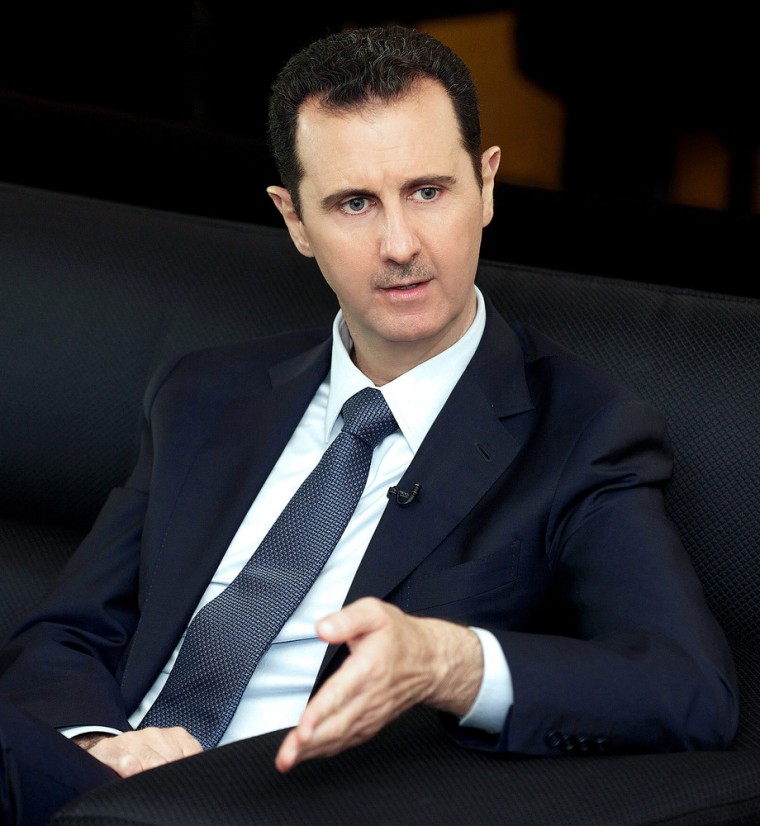News analysis
CAIRO -- Bashar Assad got away with it.
Only a few months ago, Syria's president was a widely-condemned rogue leader whose police state had just launched poison gas on commuter villages outside Damascus. Fourteen-hundred people, including hundreds of children, were choked to death, their nervous systems shut down by the gas that seeped into their homes. And the world watched it happen in unprecedented detail. Images of the attack seeped into even far corners of the Internet.
It took more than a year to determine the extent of the vicious shelling in the Syrian city of Hama in 1982 by Assad’s father. The death toll from that massacre remains disputed, but estimates from news agencies and non-governmental organizations put the total at around 20,000. This time, however, cellphones, tablets and social media exposed the horrors of what happened outside Damascus, almost in real time. Syrian activists posted live updates as bodies were buried in rows in mass graves. The hours of graphic videos of dead babies on hospital floors are accessible for free to anyone with an Internet connection.
Yet, somehow, Assad not only got away with the gas attack, but appears to have also emerged stronger after it. How is that possible?
Russian President Vladimir Putin had a lot to do with it. By stepping into the standoff between Syria and the U.S., he tossed Assad a lifeline that also allowed President Barack Obama to forgo intervening in a conflict most Americans wanted no part in after a decade of costly wars in distant Muslim lands.
Assad’s price for the monstrous attack, his punishment, was to give up his chemical weapons in an internationally-supervised process. Destroying the weapons is a net positive for the world -- fewer deadly tools in the hands of a dangerous regime -- but it’s not much of a price for Syria to pay. It’s like getting away with mass murder with only a fine.
In exchange for destroying the poison gas and the factories that make it -- a process that’s almost impossible to verify -- there would be no U.S. military strike. Assad would get to stay in power and continue his war with "conventional weapons," including artillery and Scud missile attacks on civilian areas, napalm dropped on schools, and starving the opposition into submission. Even more shocking is that Assad has weathered the crisis appearing to the world as reasonable, rational and ready to compromise.
While Putin threw Assad -- and Obama -- a lifeline, it was the rebels themselves who helped the Syrian president rehabilitate his image. The rebels are increasingly associated with al Qaeda fanatics who have hijacked their revolution. The al Qaeda rebels kidnap journalists who want to tell their story, and aid workers who try to bring food and medicine.
Assad’s government says it will take part in peace talks. The rebels refuse.
Assad says he’s fighting terrorists. Some of the rebels make him look like he has a point. This Ramadan, Assad should send Putin and al Qaeda fruit baskets.
This isn’t the first time a dictator is getting a second chance, and even coming off looking better after committing heinous crimes. Saddam Hussein was never punished for the gassing in Halabja that left 5,000 people dead; the U.S. didn’t intervene until he invaded oil-rich Kuwait two years later. Assad’s father, Hafez, remained in power for nearly two decades after Hama. He grew to become a fixture of stability in the Middle East who kept his border with Israel quiet and peaceful.
President Obama used to say it was a matter of "when," not "if" Assad’s regime would fall. Its inevitable collapse now, however, seems far less certain, even after the most watched war crime in history.
